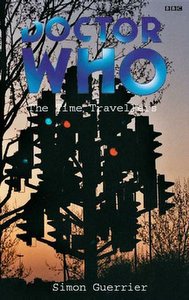We tend to define ourselves by what we are not. Lifestyle mags, like Cosmo for example, define their idea of woman-ness by contrast to man-ness. They’re about how to get/keep/chuck Your Man, and so could be argued to bolster rather than break down gender stereotypes.
Lads mags, of course, do exactly the same in reverse – lots of stuff about birds, footie, gadgets and motors, and none of that girly, gay stuff.
There’s an argument that modern Western values – a rejection of anti-Semitism and racism in favour of human rights, democracy and, in this country at least, a caring welfare state for all – are the result of World War 2.
Certainly those values weren’t seen as intrinsically “right” in the 1930s. No, whatever the reasons for our going to war, by 1945 we were defining ourselves by what the Nazis were not. We fought Hitler together and, for the last 60 years, together we’ve opposed all he stood for.
But how we define ourselves is prone to change.
Liadnan recently railed against Gordon Brown’s mission statement for Britain, and then yesterday there was this:
“There are concerns about how to strengthen a sense of shared national community in our younger generation, for whom the old national symbols of wartime solidarity are a distant story and among whom respect for cherished national traditions and social habits is limited. There is a recognition that we cannot go on living on the legend of the Second World War as our shared national experience now that no one under the age of 70 has direct experience of that war.”
Lord Wallace of Saltaire, House of Lords, 2 February 2006; col. 343.
The debate was about engendering pride in the nation and national identity. Pride, too, defines itself by its opposite. Gay pride is about there being nothing to be ashamed or embarrassed about being gay. “I’m black and I’m proud,” is about not being kowtowed by the white folk.
But national pride is not quite the same. In a lot of ways being part of a particular nation is like supporting a particular football team. It is, actually, something we can change if we really want to, for example. And what nationality we are or what team we support is not the same as what we feel – good or bad – about that team or nation.
Pride is the feeling when our team does well. We might not have won the match, but we’re proud of how we played. We’re proud of how few bookings we’ve had, or how we’ve encouraged new players. Sometimes our team can play so badly (think Liverpool v Chelsea last October) that, though we’re adamant they’re still our team, pride’s the last thing we’re feeling.
Again, we define ourselves by opposition. So we’ll wear our team colours when there’s a match on, or in celebrating a particular victory. In the UK, the Jack and the George are, generally, for the Queen, public buildings and big sporting events.
When there’s opposition to be faced, we come together. So we still celebrate, as if they were yesterday, one football match from 40 years ago and wars won against the Germans and French from last century and the century before.
The English, of course, still have funny delusions of empire, of having some kind of say in the world. Yet we’re not any different to anyone else in viewing other nations inferior, whatever the evidence to the contrary. That’s dangerously close to pride in the Biblical sense – falsely so, and asking for fate to prove you wrong.
I’m less sure about flag-waving when there’s no clear opposition about because at best it’s unnecessary and at worst downright sinister. It’s more about uniformity of thought than solidarity. On my first trip to the States in 1999, the number of stars and stripes on display was amazing and, I felt, a bit alarming. Huge flags hanging from every porch, neighbours competing for who was most proud. With only each other to parade to, you wondered who they were trying to convince and of what.
Yes, I appreciate things have changed since 2001, and that the flags stand in defiance of terrorist aggression. But they were there before, and there does seem to be a “you’re either with us or against us” attitude to
TWOT.
Part of me wonders, then, how America sees itself as a nation. Certainly not as an empire, though that’s what it quite clearly is. The rhetoric is all of the underdog, fighting the good fight against all the odds.
In some ways, its always been the country of the bullied kids – the French (who helped win its liberty) celebrated America’s call for the world’s “tired, your poor, your huddled masses yearning to breathe free, the wretched refuse of your teeming shore.” You could probably argue that US foreign policy now has the mentality of a bullied kid who grew up bigger than the bullies.
National pride has to be earned. It’s not just enough to love England blindly because of being English. We should be proud of our country because of what it does, not just because we live here. We should be proud of what our country continues to do that’s good, not just celebrate old glories. We should certainly not let those old glories slip.
For all the gains made in this country since 1945 – gains we can be justly proud of – it’s still amazing that women get paid less than men for doing the same jobs, while many claim racism is still endemic (reactions to
Sir Ian Blair’s comments last week and
Nick Griffin’s victory yesterday are what got me thinking on this post).
Likewise, we should be proud of our army when it upholds people’s rights and the rule of law, and not merely because it’s being shot at. It’s not disloyal to question why troops are sent to war, and that the war’s legitimate. It’s more supportive of the troops themselves than endangering them needlessly.
Sometimes it’s right to be ashamed:
“Channel 4 News tonight reveals extraordinary details of George Bush and Tony Blair's pre-war meeting in January 2003 at which they discussed plans to begin military action on March 10th 2003, irrespective of whether the United Nations had passed a new resolution authorising the use of force […] President Bush said that:
’The US would put its full weight behind efforts to get another resolution and would “twist arms” and “even threaten”. But he had to say that if ultimately we failed, military action would follow anyway.’
Prime Minister Blair responded that he was: ‘solidly with the President and ready to do whatever it took to disarm Saddam.’
But Mr Blair said that: ‘a second Security Council resolution would provide an insurance policy against the unexpected, and international cover, including with the Arabs.’”
Gary Gibbon, "The White House memo", Channel 4 News, 2 February 2006.
 Then to the airport, where I fended calls from estate agents and brothers. Took an age to get home from City Airport, and the Dr seemed pleased with her toys. We nattered into the small hours. And this morning I have poetry.
Then to the airport, where I fended calls from estate agents and brothers. Took an age to get home from City Airport, and the Dr seemed pleased with her toys. We nattered into the small hours. And this morning I have poetry.









